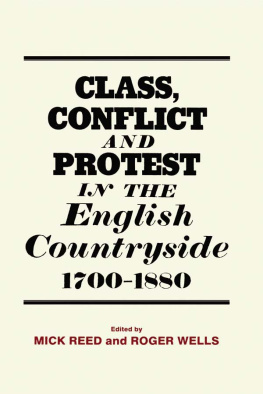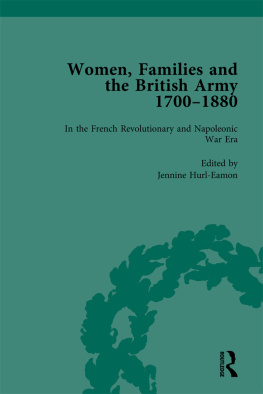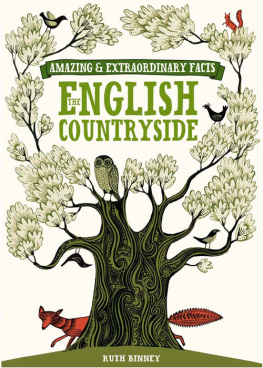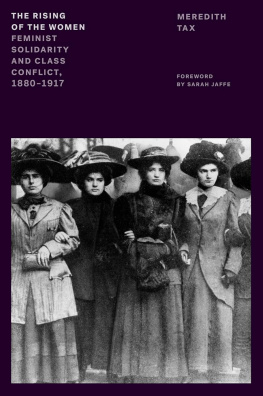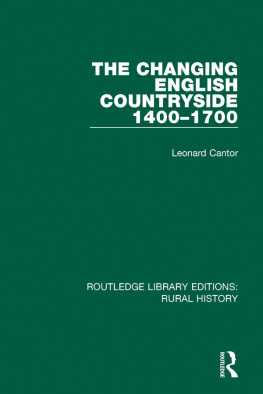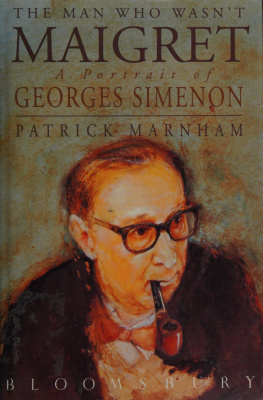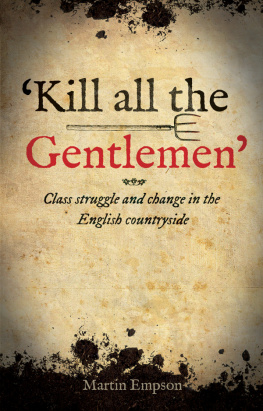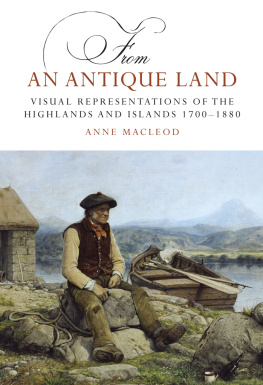CLASS, CONFLICT AND PROTEST IN THE
ENGLISH COUNTRYSIDE, 17001880
Class, Conflict
and Protest in the
English Countryside,
17001880
Edited by
Mick Reed and Roger Wells
First published in 1990 by
FRANK CASS AND COMPANY LIMITED
This edition Published 2015 by Routledge
2 Park Square, Milton Park, Abingdon, Oxon OX14 4RN
711 Third Avenue, New York NY 10017, USA
Routledge is an imprint of the Taylor & Francis Group, an informa business
Copyright 1990 Frank Cass & Co. Ltd.
British Library Cataloguing in Publication Data
Class, conflict and protest in the English countryside,
17001800.
1. England. Rural regions. Social conflict, history
I. Reed, Mick 1942 May 15 II. Wells, Roger A.E. (Roger Anthony Edward 1947
303.60942
ISBN 0-7146-3343-7
Library of Congress Cataloging-in-Publication Data
Class, conflict, and protest in the English countryside, 17001880 / edited by Mick Reed and Roger Wells,
p. cm.
ISBN 0-7146-3343-7
1. EnglandSocial conditions18th century. 2. EnglandSocial conditions19th century. 3. EnglandRural conditions. 4. Social conflictEnglandHistory18th century. 5. Social conflict EnglandHistory19th century. I. Reed, Mick, 1942
II. Wells, Roger A.E.
HN398.E5C55 1990
306.094209033dc20 | 89-70799 CIP |
All rights reserved. No part of this publication may be reproduced, stored in a retrieval system, or transmitted in any form, or by any means, electronic, mechanical, photocopying, recording, or otherwise, without prior permission of the publisher.
ISBN 978-0-7146-3343-5 (hbk)
Contents
Mick Reed |
Roger Wells |
Andrew Charlesworth |
Roger Wells |
J.E. Archer |
Dennis Mills and Brian Short |
Mick Reed |
Dennis Mills |
Roger Wells |
Mick Reed Roger Wells |
Editors Note:
The problem of cross-referencing the original references in each article to the pages in the present volume has been met by leaving each original reference as it is but to add to it after a stroke (solidus), the relevant page number(s) in this volume, hence: [Wells, 1979: 201] might become [Wells, 1979: 201/110] where 110 is the page number in this volume.
The first and final two articles in this volume are published here for the first time. The remaining contributions have previously appeared in The Journal of Peasant Studies as follows:
Article 2 appeared in Vol. 6, No. 2 (1979)
Article 3 appeared in Vol. 8, No. 1 (1980)
Article 4 appeared in Vol. 8, No. 4 (1981)
Article 5 appeared in Vol. 9, No. 4 (1982)
Article 6 appeared in Vol. 10, No. 4 (1983)
Article 7 appeared in Vol. 12, No. 1 (1984)
Article 8 appeared in Vol. 15, No. 3 (1988)
Acknowledgements
In all historical research and writing, there will be many to whom authors are indebted, most of whom are never named, or sometimes not even remembered. In our case we must, however, single out two people. First, no researcher on the left who works on English history since the seventeenth century, can fail to be indebted to the work of E.P. Thompson. Secondly and in our case much more directly, the editor of The Journal of Peasant Studies, Terry Byres, not only encouraged us independently to address the Peasants seminar convened by him at the Institute of Commonwealth Studies, University of London, but subsequently convinced us that our findings would interest readers of the journal.
Those who picked up the cudgels and developed the debate through their own contributions namely, John Archer, Andrew Charlesworth, Dennis Mills and Brian Short must be thanked for granting permission for their essays to be reproduced in this volume. Each also gave advice on where they felt the debate had led, and thus influenced us in constructing the essays we wrote expressly for this book.
Both editors and the other contributors to the debate are indebted to Terry Byres and his co-editor of the journal Charles Curwen, and later Henry Bernstein for having given space to us to explore our ideas in what were often clearly provisional findings.
Roger Wells wishes to extend grateful thanks to Malcolm Chase, John Rule as well as Professors Gwyn Williams and George Rud for extended and invariably rewarding discussions on many of the topics embraced in this volume. Mick Reed would like to acknowledge the influence of Ian Carters work upon much of his approach to the problems of rural history.
Mick Reed and Roger Wells
Mick Reed
Rural history in England is not in good health. This is especially true of the history written about the period covered by this volume. For too long the most prominent historians of the English countryside have been obsessed with ploughs and cows. Rural history has been synonymous with agricultural history. The case against agricultural history and especially against its present profoundly ossified state as exemplified by the Agricultural History Review, has been put extremely fluently by Keith Snell [personal communication] who rails against
Its narrowly defined conception of the subject, and its reluctance to make any progress into topics which ought to be central to a properly considered definition of our discipline and academic concerns. Agricultural history has been so narrowly conceived for such a long time that it is almost hard to imagine that it could be otherwise. We believe that there is now widespread disillusion within the relevant scholarly community with the general unimaginative and reactionary tone of plough and cow agricultural history, and with the ways in which so-called established views are perpetuated in an increasingly pedestrian style, which often lacks the support of fresh research and more original thinking.
Economic agricultural history is of course a vital part of any study of rural England. The problem is precisely as Snell points out, that there is virtually no original thinking. All too often, hackneyed neo-classical concepts are applied to the study of many very different societies without any questioning as to whether the concepts have any applicability to those societies. Indeed the fact that these concepts are actually neo-classical is so seldom hinted at that one suspects such authors are unaware that they are actually using theoretical concepts at all. So much of the work within the discipline is superficially at least based on a naive empiricism. One could be almost excused, whilst reading many works on agricultural history, for failing to realise that agriculture is not simply something that happens autonomously, or at the simple behest of a wealthy farmer or landowner, but is in fact a product of political economy by which I mean of people in production relationships, of authority and subordination, indeed in relations of class.
Of course not all rural history is of this traditional kind. There are numerous social historians working within the subject area, as well as historical geographers and scholars from other disciplines. For many of these however, the orthodoxy has been already created from within the barren premises of agricultural history. After all, the standard textbook on rural England in the eighteenth and nineteenth centuries is still


